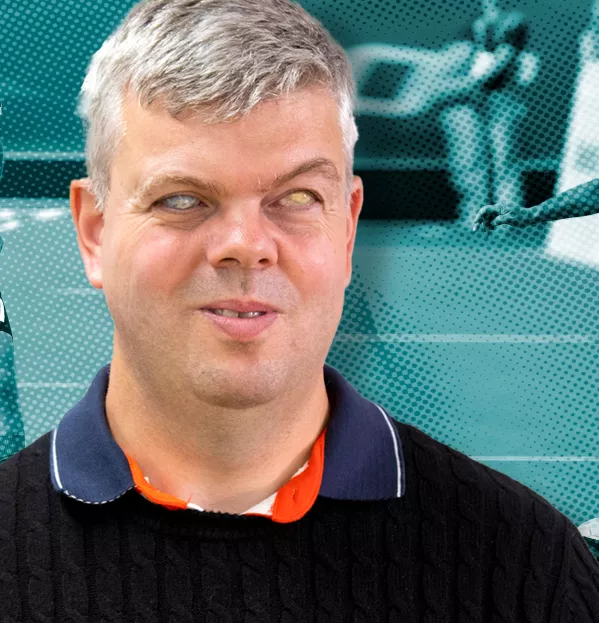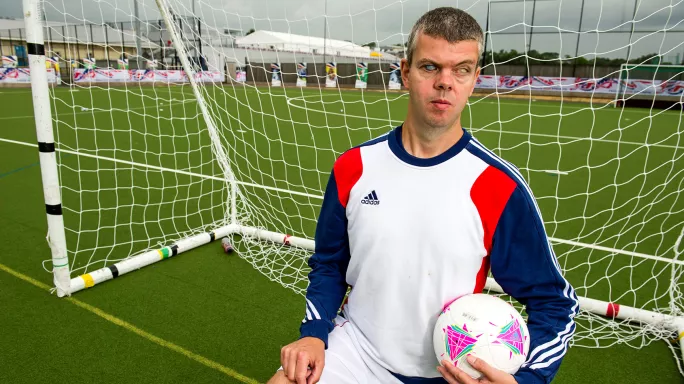‘SEND pupils need more PE opportunities’

“Imagine if 75 per cent of all kids didn’t do sport? The physical and mental health of our nation would be at risk - but that is currently the reality for disabled kids.”
David Clarke, chief executive of the British Paralympic Association, is not blaming teachers for this lack of opportunity for children with special educational needs and disabilities (SEND). But he does want to see change that would include schools, and quickly: the number of children with SEND is increasing rapidly.
More than 1.5 million pupils in England - 17.3 per cent of the total - now have SEND, according to government data released last summer.
Of those students, more than 380,000 have an education, health and care plan (EHCP) - up by 9.5 per cent from 2022.
Speaking to Tes as his organisation launches its Path to Paris scheme with Olympics GB, to encourage primary school pupils to get active ahead of the games this summer, Clarke said that movement is a “critical part of education” but is inaccessible to many students with SEND.
Clarke is blind as a result of glaucoma and believes he was an anomaly in being able to access sport when he was younger. He says he was “fortunate” that the special school education he had was “coupled together with sport that had a visually impaired slant on it, so you were on a level playing field and the teachers had the specialist knowledge on how to adapt for that disability”.
He believes a “fundamental shift” needs to happen so that every child with SEND has that opportunity.
It’s about “the right to move, the right to do activity, the right to do sport in school”, he says.
To ensure that happens, he insists that a mix of training, resource and opportunity needs to be funded by the government.
Poor-quality sports provision for pupils with SEND can often be the case despite the “incredible efforts of teachers and teaching assistants”, Clarke says.

“Teachers already have an incredibly difficult challenge to meet the individual educational needs of every pupil. There are additional aspects of that when it comes to disability.”
Changing this is about “giving people the tools and the knowledge and the understanding” to improve their teaching to students with SEND, he says.
Teachers need time to support pupils with SEND
The goal is not making pupils with SEND do sport, necessarily - “this is about providing the opportunity that anyone else in their classroom would be given”, he says.
A crucial aspect of this is time, he says. Pupils with SEND often have to spend extra time on other activities - such as additional physio or extra reading lessons - which take precedence over physical education, he says.
Funding more time in the day so this does not come at the expense of physical education “is absolutely critical to the education that disabled kids receive”, he argues.
Alongside more time, what is needed is greater knowledge of the adaptations that can be made to improve access.
“In my case, changing the football from an ordinary football to a football with a ball bearing - which involves placing the machine element into it so it rattles - was a beautiful way of making the lesson inclusive,” says Clarke, who went on to represent Great Britain in the 2012 Paralympics football team.
Expectations are also a key cog in opening sport up to children with SEND, he says
Clarke’s primary school teacher, Ron De La Cruz, was the man who came up with the idea of how his blind pupil could play football, and the Paralympian credits his secondary school teacher Tim Spenser for driving him towards competitive sport.
“Mr Spenser has a very supportive nature but also a no-nonsense attitude that gave me, as a disabled person, no excuses for why I couldn’t do something.
“In turn, that meant no one else could give any excuses as to why a disabled person should not be able to do something either.”
The 2024 Paralympics is being held in Paris from 28 August to 8 September. Pupils aged 5-11 can sign up to Path to Paris, along with their families, to get more active with virtual challenges
For the latest education news and analysis delivered directly to your inbox every weekday morning, sign up to the Tes Daily newsletter
You need a Tes subscription to read this article
Subscribe now to read this article and get other subscriber-only content:
- Unlimited access to all Tes magazine content
- Exclusive subscriber-only stories
- Award-winning email newsletters
Already a subscriber? Log in
You need a subscription to read this article
Subscribe now to read this article and get other subscriber-only content, including:
- Unlimited access to all Tes magazine content
- Exclusive subscriber-only stories
- Award-winning email newsletters



